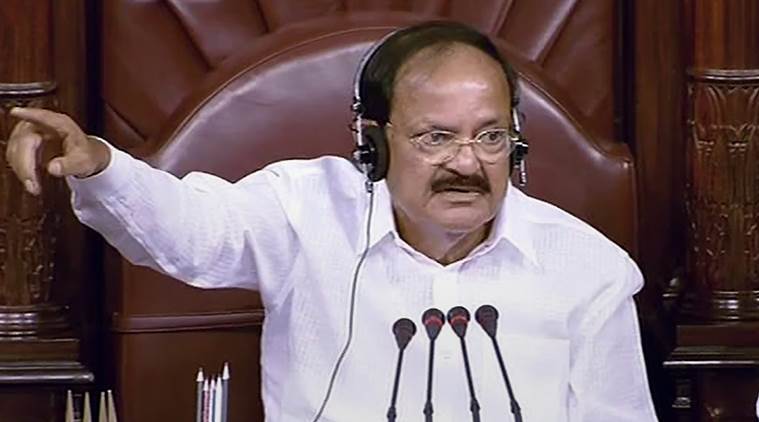
In what could be viewed as muscle-flexing by the State to censor its criticism by opposition parties, Rajya Sabha Chairman Venkaiah Naidu temporarily suspended telecast of house proceedings just when opposition parties took offence to statements made by Home Minister Amit Shah about Assam.
At 12:20 PM Shah started speaking about Assam. He said, “As far as Assam is concerned, I want to put forth a hard truth before the house. In 1985, then Prime Minister Rajiv Gandhi signed the Assam Accord. As per clause six of the accord government was to protect the identity, language, culture and representation of the people of Assam. The government was to set up a committee under clause 6 to look into this. But this committee was not made until Narendra Modi came to power.” Shah went on to invoke the martyrs of the Assam agitation saying, “We believe that the sacrifices of the martyrs should not go in vain. Which is why we will bring the real solution to Assam’s problems. This is why we have created a clause 6 committee that also includes members of AASU (the organization at the forefront of the Assam agitation) and Asom Gana Parishad.”
This led to vociferous retaliation from the opposition benches. “This is misleading. There is no need for committee for clause 6,” said Ripun Bora of the Congress, fact checking Amit Shah. Clause 6 of the Assam Accord says, “Constitutional, legislative and administrative safeguards, as may be appropriate, shall be provided to protect, preserve and promote the cultural, social, linguistic identity and heritage of the Assamese people.” Nowhere does it mention requirement for formation of any committee.
But Naidu asked him to sit down claiming he was misbehaving. Naidu further ordered, “This will not go on record. Nothing should be shown.” But Bora kept drawing attention to clause 5 instead of clause 6, as it is the various provisions of clause 5 that deal with questions about the influx of foreigners. Shortly after this telecast of proceedings was suspended and the screen simply read, “Telecast of proceedings of Rajya Sabha to resume shortly.” A few minutes later, when proceedings resumed, the commotion had died down.
As all records of what transpired in the interim are unavailable, it is difficult to say whether the concerns raised by Borah were addressed. What is undeniable though is how at the slightest indication of contradiction, dissent or criticism, the state was quick to exercise censorship. And there will be many who will invariably engage in ‘whataboutery’ citing censorship during the Emergency. However, the bigger questions remain:
- Is the successor entitled to repeat the sins of the predecessor?
- Do two wrongs make a right?
- If Indira Gandhi abused power and brought about censorship, is the Modi-Shah regime entitled to perpetuate this cycle of abuse?
- Is this the advent of a totalitarian regime that will shut down and censor all criticism and dissent?